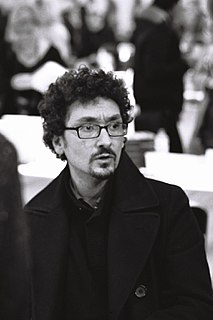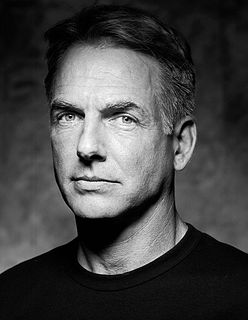A Quote by David Foenkinos
But you need to have lived years in nothingness to understand how a person can suddenly become frightened by a possibility.
Quote Topics
Related Quotes
The players start to recognise your game, start to know how you move, how you pass, how you shoot and the things become difficult now. So now I need to improve more and to work more and understand more the teams who I play against because they will understand me better, but I need to be prepared to understand better the difficulties they can have.
You can make the argument that there's no such thing as the past. Nobody lived in the past. They lived in the present. It is their present, not our present, and they don't know how it's going to come out. They weren't just like we are because they lived in that very different time. You can't understand them if you don't understand how they perceived reality.
People ask me when I decided to become a playwright, and I tell them I decide to do it every day. Most days it's very hard because I'm frightened - not frightened of writing a bad play, although that happens often with me. I'm frightened of encountering the wilderness of my own spirit, which is always , no matter how many plays I write, a new and uncharted place. Every day when I sit down to write, I can't remember how it's done.
If you're going to do a memoir, then it's sort of at this age - in your late sixties or seventies - that you do it. I don't understand people who do memoirs when they're 20. I think most people need a little more time than 20 years to become the person they are. In fact, that process of becoming who you are is still ongoing when you get older, where you go, "Let's see where my next 10 years is going to take me." S
I think the characteristics of really effective leaders when people are frightened and depressed are the same qualities that leaders need when people are optimistic. The difference is when people are frightened the need for these few qualities becomes much stronger because frightened people are desperate to have someone they can trust and believe in and who seems to be able to create a better future.
One's condition on marijuana is always existential. One can feel the importance of each moment and how it is changing one. One feels one's being, one becomes aware of the enormous apparatus of nothingness - the hum of a hi-fi set, the emptiness of a pointless interruption, one becomes aware of the war between each of us, how the nothingness in each of us seeks to attack the being of others, how our being in turn is attacked by the nothingness in others.
That is, you can have nothingness, absolute nothingness for maybe a tiny fraction of a second, if a second can be defined in that arena, but then it falls apart into a something and an anti-something. And that something is then what we call the universe. But can we really understand that or put rigorous mathematics or testable experiments against that? Not yet. So one of the big holy grail of physics is to understand why there is something rather than nothing.



































